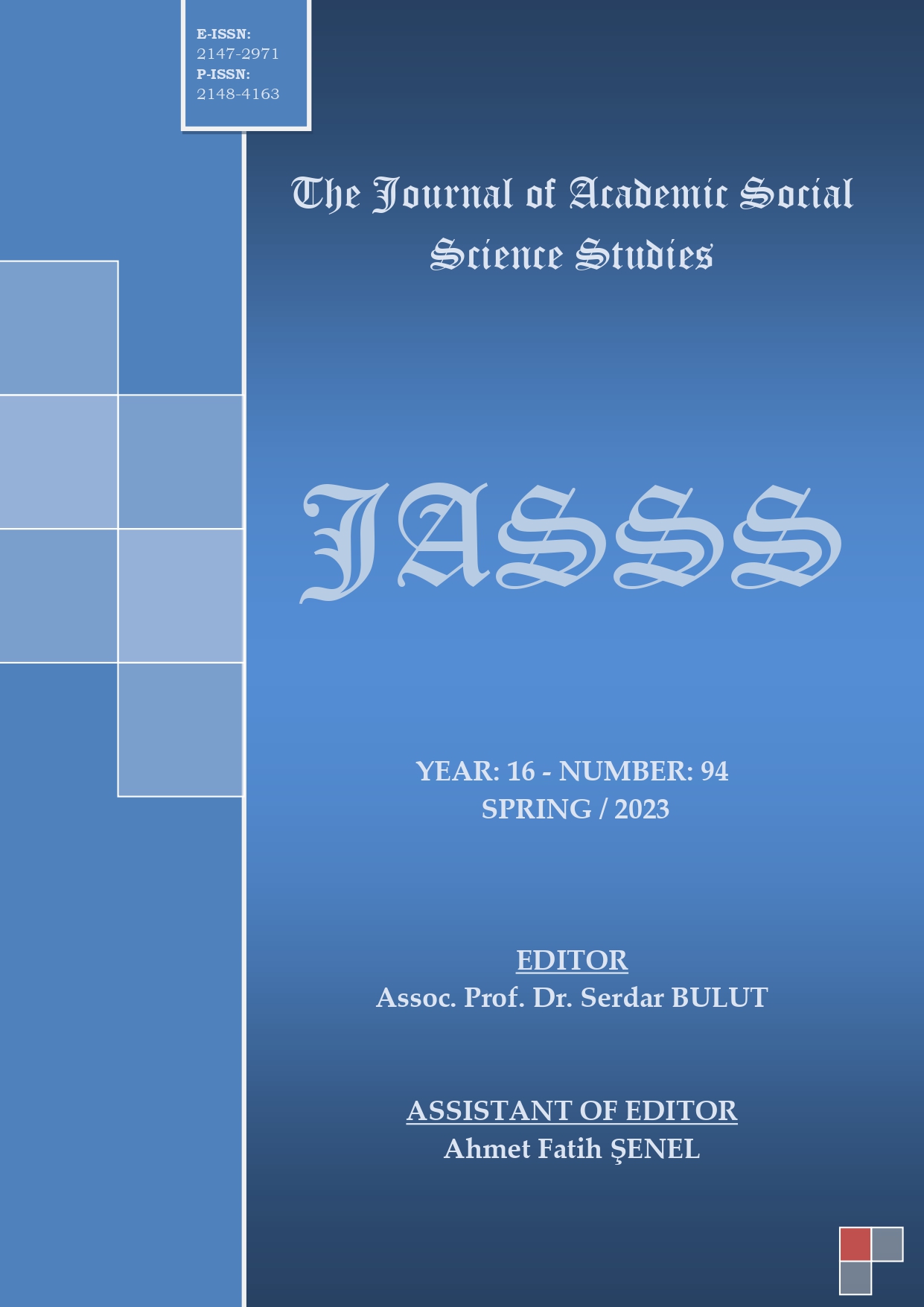Author :
Abstract
19. yüzyılın sonunda başlayıp, 20. yüzyılın ortalarında modernizm, toplumun her alanını etkilemiştir. Savaş, yıkım ve endüstrileşme, nüfus artışı sonucu ortaya çıkan modernizm, bu ‘çöküş’ dönemini yaşayan bireyler üzerinde etkili olmuştur. Psikolojinin bilimselleşmesine psikanaliz çalışmalarıyla önemli bir katkı sunan Sigmund Freud, modern dönem insanına etki etmiştir. Topluma yayılıp farklı bir bilinç ortaya çıkaran bu yeni düşünce biçimi ve psikoloji etmeni, sanat, mimari ve müziğe olduğu gibi edebiyata da nüfuz etmiştir.
1877 yılında Almanya’da dünyaya gelen ve bu yıkım, savaş ve bireyselleşmeye tanıklık eden Hermann Hesse’de modern dönem Avrupa’sında yaşamış olmasına karşın bazı çevreler tarafından antimodernist olarak nitelendirilmektedir. Eserlerinde çağ eleştirisi, doğu mistisizmi, arayış ve yalnızlığın hâkim olduğu konu ve karakterlerle okuyucu karşısına çıkan Hesse, gerçekten de modernizm karşıtı mıdır yoksa eleştirdiği çağın getirdiklerini eserlerine yansıtmış mıdır? Nedensel araştırma yönteminin kullanıldığı bu çalışmada, Hermann Hesse’nin bir bunalım dönemindeyken yazdığı şiirlerden dönüştürerek kaleme almış olduğu Bozkırkurdu adlı eseri modernizm etmenine göre incelenecektir. Araştırma sonuçlarına göre, yazar ekseninde özellikle eserin modernist veya antimodernist yaklaşıma yatkınlığı ve nedeni ortaya konmaya çalışılmaktadır. Ayrıca psikoloji bilimi vasıtasıyla ortaya çıkan psikanaliz tekniği ile eserdeki psikolojik etmenler gözlenmeye çalışılıp araştırma amacımıza katkı sağlaması hedeflenmiştir. Hesse’nin psikanaliz tekniğini bilinçli şekilde kullandı Bozkırkurdu adlı eserde, modern dönem insanının yaşadığı bunalım, öznellik, arayış gibi unsurların yanı sıra kişilik bölünmesi, dolaylı yoldan hipnoz gibi psikolojik bulgular da göze çarpmaktadır. Elde edilen bu tespite göre otobiyografik öğeler taşıyan Bozkırkurdu adlı romanın psikanalitik değerlendirilmesi yapılarak, modern dönem edebiyatına bir ışık tutulmaya çalışılmaktadır.
Keywords
Abstract
Beginning at the end of the 19th century and in the middle of the 20th century, modernism has affected all areas of society. Modernism, which emerged as a result of war, destruction, industrialisation and population growth, had an impact on individuals who experienced this period of 'collapse'. Sigmund Freud, who made an important contribution to the scientificisation of psychology with his psychoanalysis studies, influenced the people of the modern period. This new way of thinking and psychological factor, which spread to the society and created a different consciousness, penetrated literature as well as art, architecture and music.
Born in 1877 in Germany and witnessing this destruction, war and individualisation, Hermann Hesse is considered by some circles as an antimodernist, even though he lived in modern Europe. Is Hesse, who confronts the reader with subjects and characters dominated by criticism of the age, eastern mysticism, search and loneliness in her works, is she truly anti-modernist or has she reflected what the age she criticised brought to her works? In this study, in which the causal research method is used, Hermann Hesse's The Steppenwolf, which he transformed from the poems he wrote during a period of depression, will be analysed according to the factor of modernism. According to the results of the research, the tendency of the work to modernist or antimodernist approach and its reasons are tried to be revealed on the axis of the author. In addition, it is aimed to contribute to our research aim by trying to observe the psychological factors in the work with the psychoanalysis technique that emerged through the science of psychology. In The Steppenwolf, in which Hesse consciously used the technique of psychoanalysis, psychological findings such as depression, subjectivity, and search experienced by the people of the modern period, as well as psychological findings such as personality splitting and indirect hypnosis, stand out. According to this determination, a psychoanalytic evaluation of the novel The Steppenwolf, which has autobiographical elements, is made and an attempt is made to shed light on the literature of the modern period.
